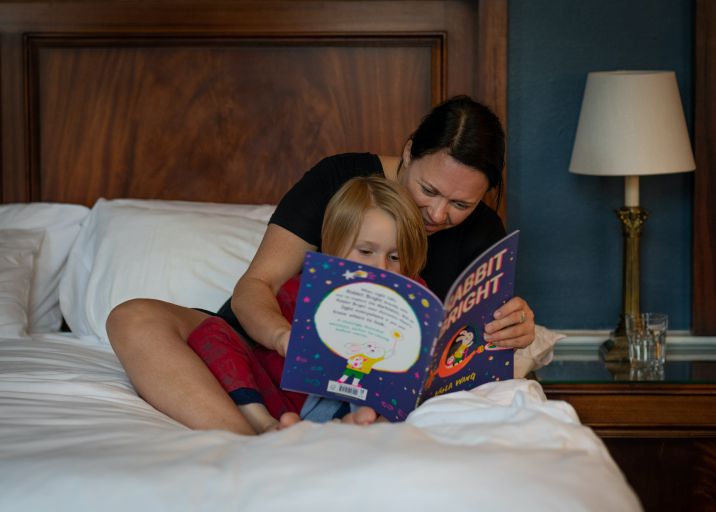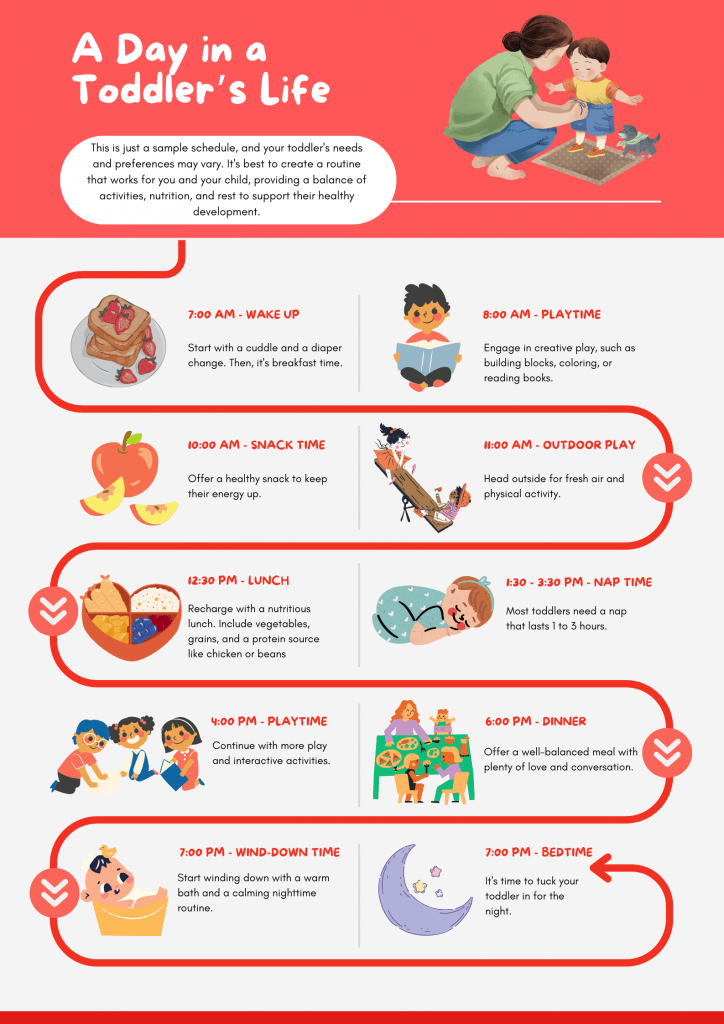When should you give up your toddler’s nap? Read a sleep expert’s insights and signs your toddler is…
When should you give up your toddler’s nap? Read a sleep expert’s insights and signs your toddler is ready to stop napping.
When my textbook sleeper began taking longer and longer and longer to fall asleep at nap time, I persisted with iron-clad determination.
She would sleep.
I had worked so hard to get my then 18-month-old and two-and-a-half-year-old to nap at the same time.
I could eat lunch uninterrupted, wash the floors, or nap with them. My son was a terrible sleeper and so I didn’t want to give up the only time I could get some R&R.
I remained hopeful that maybe there was research to suggest that kids needed to nap until at least grade school, if not longer…
Related reading: 15+ Calming Toddler Activities For When Your Child No Longer Naps
After way too long of desperately trying to get her to sleep, and after a few missed naps and a grouchy girl, I messaged one of my good friends. Chelsea is a Certified Sleep Sense Consultant. I messaged her in the hopes that she could give me a few insightful tips to get my toddler’s naps back.
What I got back was that it was very clear at a few months shy of three, my little girl was ready to give them up. Nevertheless, I had to ask Chelsea, ‘If she’s ready, why is she so temperamental without one?’ Chelsea assured me this was normal, and to facilitate quiet downtime with a carb-rich snack such as fruit or bread to give her energy.
Related reading: Why you shouldn’t punish tantrums and what to do instead
It’s a question I am asked often, ‘Is my toddler ready to stop napping?‘ I know they want to hear a ‘No’ from me. Many parents, myself included, enjoy the 2-hour break when their toddler snoozes away. They can get things done. But we can’t deny the signs that our toddler is ready to stop napping. – Chelsea, the sleep consultant

Your toddler will let you know when they are ready to drop naptime in their schedules. You need to be on the lookout for the following signs:

Every toddler is unique, and their schedules may vary. However, consistency and balance are key to your little one’s daily routine. Their day typically revolves around their need for rest, play, and meals.
Most toddlers aged 1 to 3 years still benefit from daytime sleep, usually lasting one to three hours. This nap can help your child recharge their energy and enthusiastically continue their day. After waking up, they’re ready for active playtime, exploring the world around them and engaging in creative activities.
Mealtimes are also crucial, with regular breakfast, lunch, and snacks to satisfy those tiny tummies. Naps may gradually decrease as they grow older. Paying attention to your toddler’s cues can help you discern if they’re getting too much sleep or too little.
Lastly, establishing a bedtime routine can help ensure your kids will fall asleep with minimal or no struggles (yay!) at all. If your kids fall into a sleep regression, don’t worry. You can manage it using these hacks.

7:00 AM – Wake Up: Greet the day with a smile! Start with a cuddle and a diaper change. Then, it’s breakfast time.
8:00 AM – Playtime: Engage in creative play, such as building blocks, coloring, or reading books. This period is an excellent opportunity for learning and bonding with your little one.
10:00 AM – Snack Time: Offer a healthy snack to keep their energy up. Fresh fruits, yogurt, or a small sandwich are great options.
11:00 AM – Outdoor Play: Head outside for fresh air and physical activity. Whether it’s a park visit or a neighborhood walk, toddlers thrive on exploration and play.
12:30 PM – Lunch: Recharge with a nutritious lunch. Include vegetables, grains, and a protein source like chicken or beans.
1:30 PM – Nap Time: It’s time for a nap. Most toddlers need a nap that lasts 1 to 3 hours. Make sure the sleep environment is cozy and conducive to rest.
3:30 PM – Wake Up: Gently wake your toddler up if needed. Have a small snack, like a piece of fruit, to wake them up entirely.
4:00 PM – Playtime: Continue with more play and interactive activities. Building social skills and imagination is essential during this time.
6:00 PM – Dinner: Enjoy a family dinner together. Offer a well-balanced meal with plenty of love and conversation.
7:00 PM – Wind-Down Time: Start winding down with a warm bath and a calming nighttime routine. It can include reading a story or singing a lullaby.
7:30 PM – Bedtime: It’s time to tuck your toddler in for the night. Ensure their sleep environment is safe and comfortable, and wish them sweet dreams.
Remember, this is just a sample toddler schedule, and your child’s needs and preferences may vary. It’s best to create a routine that works for both of you, providing a balance of activities, nutrition, and rest to support healthy development.
Navigating toddler slumber is quite tricky. Parents often ponder the age-old question: How much sleep does their little one need? Ideally, toddlers aged 1 to 3 find the sweet spot of 11 to 14 hours of restorative sleep per day.
The recommended 11 to 14 hours of slumber for toddlers is grounded in extensive research. It highlights sleep’s crucial role in the child’s physical, cognitive, and emotional development. Numerous studies emphasize the impact of adequate sleep on various aspects of a toddler’s well-being.

The journal Sleep Health published a study that underscores the importance of sufficient sleep in toddlers for optimal daytime functioning, including improved attention, memory, and emotional regulation (Walker, 2017). Another study in the journal Pediatrics shows the link between sleep duration and cognitive development, emphasizing that shorter sleep duration in toddlers is associated with lower cognitive scores (Liu et al., 2015).
Additionally, the American Academy of Pediatrics (AAP) supports the idea that adequate sleep is essential for overall health and well-being in young children. According to the AAP’s guidelines, toddlers aged 1 to 2 should aim for 11 to 14 hours of sleep per 24 hours, and those aged 3 to 5 should target 10 to 13 hours (Hirshkowitz et al., 2015).
Studies say 11 to 14 hours of sleep a day for toddlers sets the stage for brainpower and emotional well-being. So, here’s the plan: stick to a cozy bedtime routine, make sure your little one gets enough shut-eye, and pay attention to what works for them. By doing this, we’re building an environment where toddlers can grow and flourish.
Ask any parent who has watched a two‑year‑old “fail” to hear the call to put on shoes—only to…
Toddlers can be confusing, to say the least. One moment they’re clinging to your leg like a baby…
Affection wasn’t really a thing in my childhood home. My parents were good providers, but hugs, “I love…